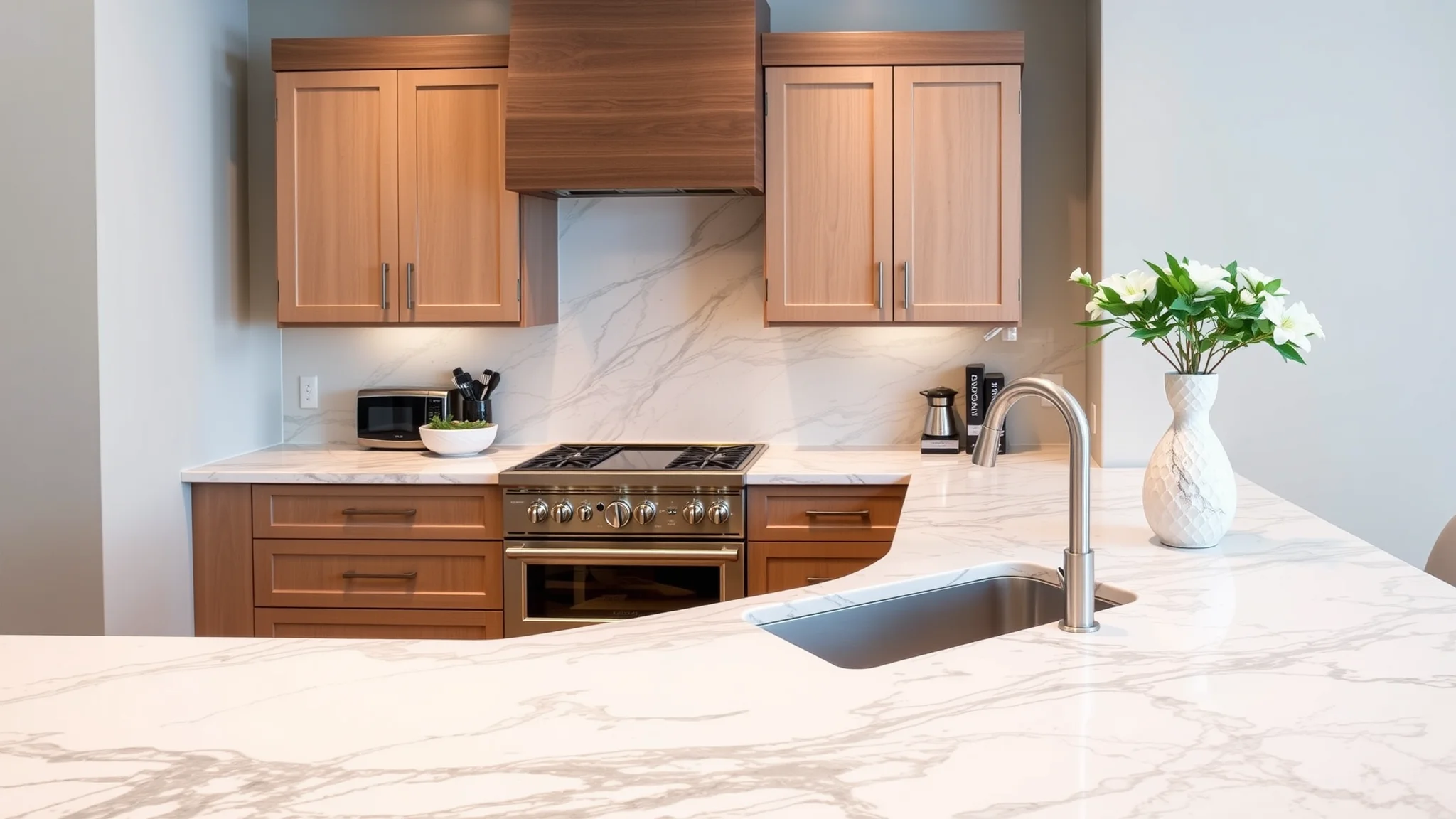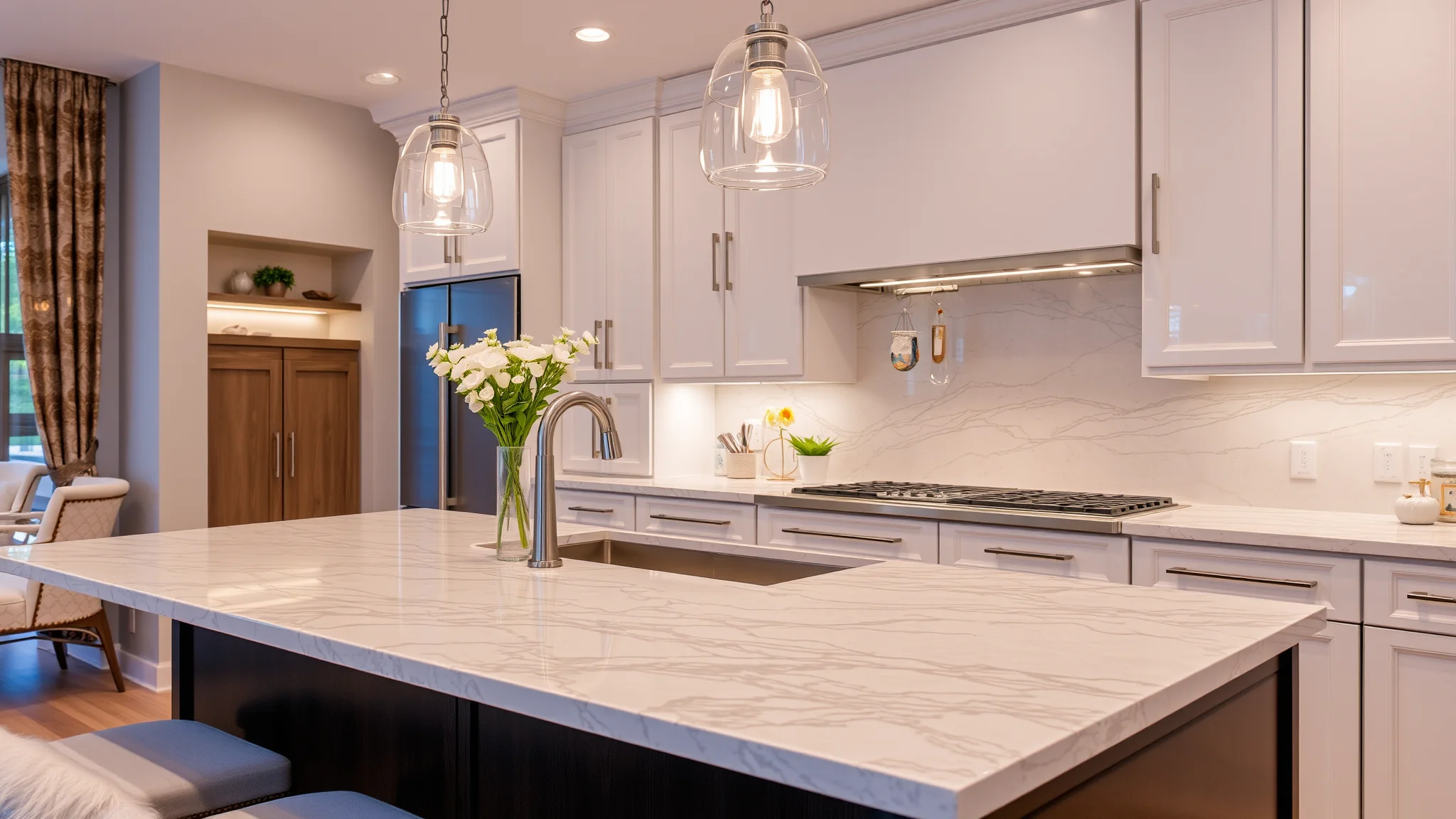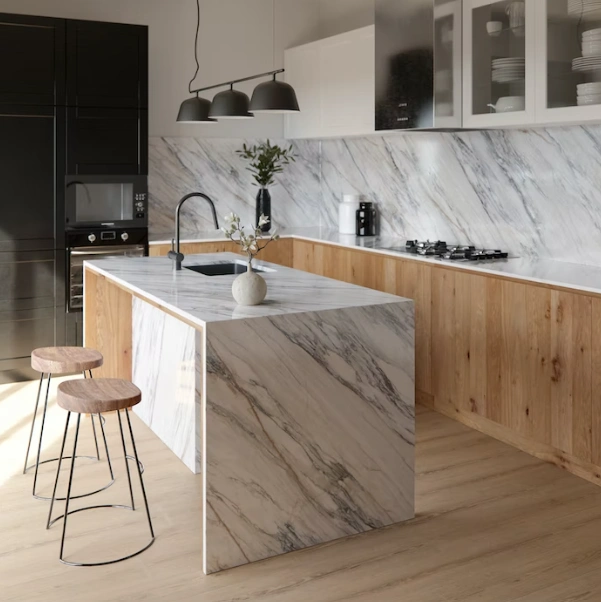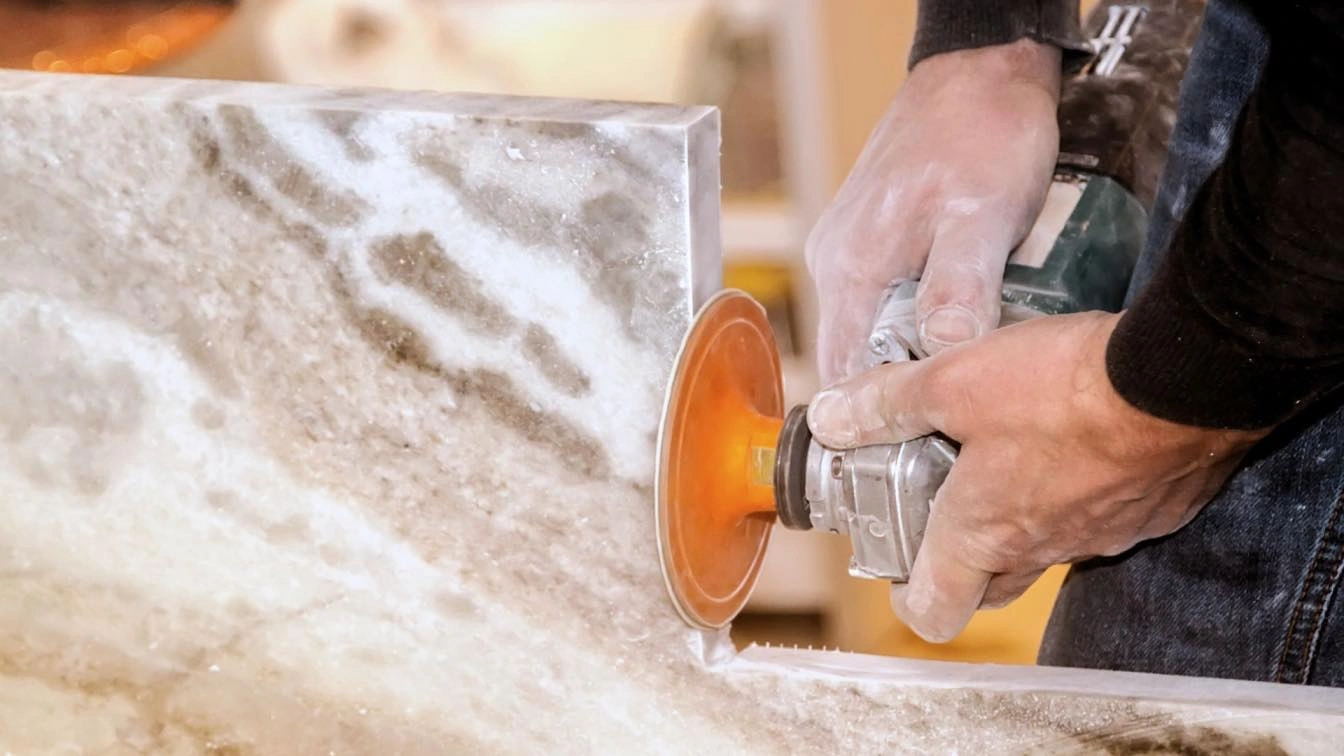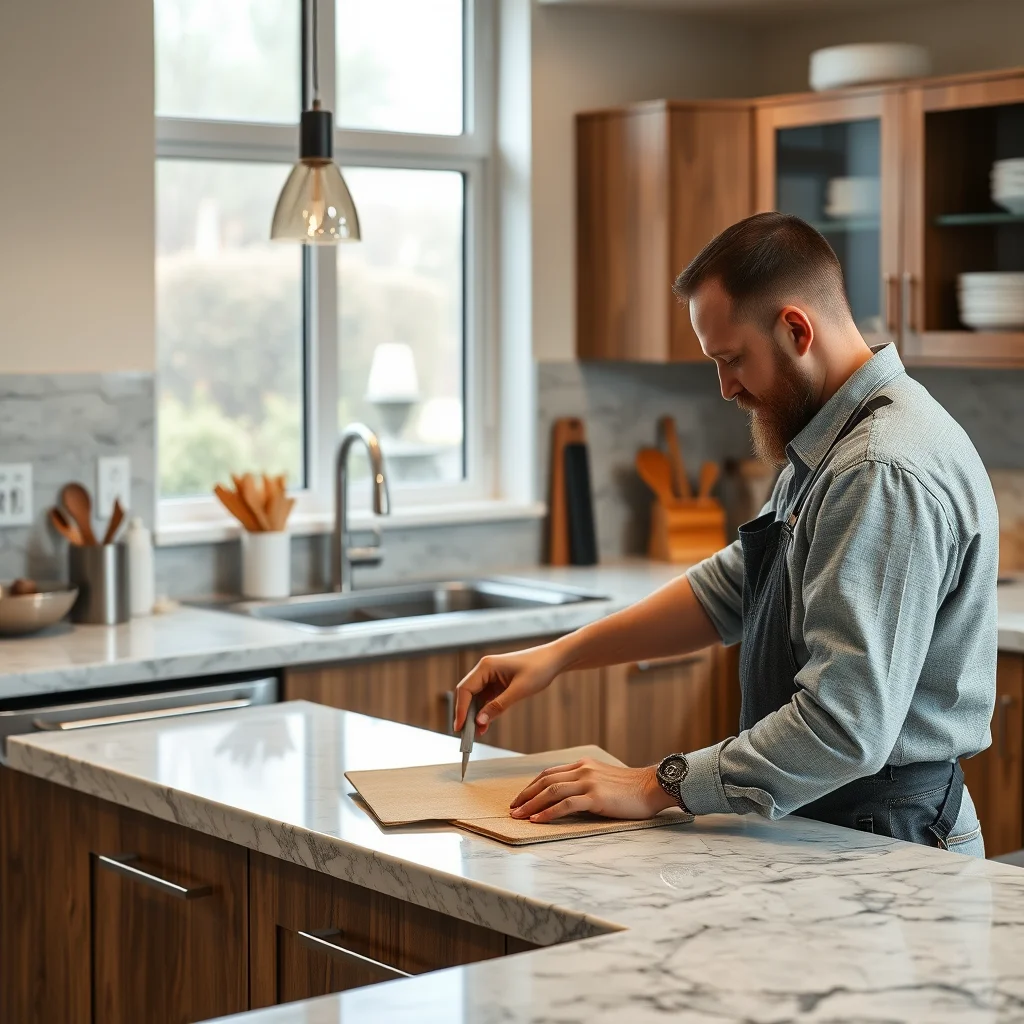
How to Remove Stains from White Quartz Countertops Easily
Confession: Here’s How to Remove Stains from White Quartz Countertops Like a Pro!
Let me start with a little confession — I used to think that white quartz countertops were practically indestructible. Easy to clean, low-maintenance, and just beautifully sleek, right? Well, I was wrong. No surface is completely stain-proof, especially not in a busy kitchen where spills, splashes, and mishaps are daily occurrences. But here’s the truth — with the right knowledge and a couple of simple tricks, you can learn how to remove stains from white quartz countertops effectively, like a seasoned pro. And today, I’ll share all those secrets with you.
Why Do White Quartz Countertops Stain Anyway?
Before diving into the removal tactics, it’s essential to understand why stains happen in the first place. White quartz is a composite material made of crushed quartz and resin. While durable, it's not completely resistant to staining. Porous substances like wine, coffee, grease, or even certain cleaning products can seep into the resin, leaving stubborn marks that seem impossible to wipe away. Knowing what causes stains helps us prevent them and approach stain removal with confidence.
White quartz can be vulnerable to a range of stains, including:
- Wine and coffee — dark, persistent spots that dull the counter’s brightness
- Oils and greases — stubborn patches that seem to smear or leave a greasy residue
- Food Colorants — like berry juices or turmeric, which can leave vibrant, hard-to-remove marks
- Cleaning Products — improper use of harsh chemicals can cause discoloration or dullness
How Can I Prevent Stains from Forming on My White Quartz Surface?
Preventive measures are always better than reactive cleaning. Here are straightforward steps you can take:
- Wipe up spills immediately — don’t wait until they set in.
- Use cutting boards and trivets — protect the surface from scratches and staining agents.
- Clean with gentle, non-abrasive cleaners — avoid harsh chemicals that can damage the resin.
- Seal your countertops periodically — although quartz is non-porous, some sealing can enhance stain resistance.
By following these simple habits, you can dramatically reduce the likelihood of developing difficult stains on your white quartz countertops.
Absolutely. For minor blemishes or freshly spilled liquids, a gentle cleaning routine works wonders:
- Start with a soft microfiber cloth or sponge dipped in warm water mixed with a few drops of mild dish soap.
- Gently wipe the stained area, applying light pressure—no harsh scrubbing!
- If needed, use a non-abrasive quartz cleaner (preferably recommended by the manufacturer) for stubborn spots.
- Dry the surface with a soft cloth to prevent water spots and streaks.
This routine keeps your countertops looking pristine without risking damage or dullness.
What Should I Do When the Stain Is Too Stubborn for Regular Cleaning?
Some stains just don’t budge with basic cleaning. When that happens, it’s time to get a bit more hands-on. Here’s my secret:
Indeed, they can! Making a paste of baking soda and water creates a gentle abrasive that can lift many stains without scratching your surface. Here's how:
- Mix a small amount of baking soda with just enough water to form a thick paste.
- Apply the paste directly onto the stain, covering it evenly.
- Let it sit for about 10-15 minutes — this softens the stain’s grip.
- Lightly scrub with a soft cloth or sponge, then rinse thoroughly with clean water.
- Dry with a microfiber cloth and check if the stain has lightened or disappeared.
For deep or ink-like stains, you may need to repeat this process a couple of times. Just remember, avoid scrubbing too hard to prevent dulling the surface.
Yes. There are several quartz-safe stain removers on the market designed specifically for non-porous surfaces. Look for products that are labeled as safe for quartz and follow the manufacturer’s instructions. Some products contain mild acids or bleaching agents, but always test on a small, inconspicuous area first. For ongoing maintenance, using a dedicated quartz cleaner can help preserve the surface’s beauty and resist future stains.
When Should I Consider Professional Help for Stain Removal?
While DIY solutions are effective for most everyday stains, some stubborn marks may require professional intervention. If you've tried repeatedly to remove a stain and it refuses to budge, or if the surface has been damaged or discolored, reaching out to experts can save your countertops. Professionals, like those at BCG Cabinet & Stone LLC, possess specialized tools and knowledge to restore your surface’s original look without risking further damage.
Be mindful of these pitfalls that could worsen your problem:
- Using abrasive scrubbers or steel wool — scratches the resin, leading to dullness and potential staining.
- Applying harsh chemicals like bleach or ammonia indiscriminately — can discolor or weaken the surface.
- Ignoring small stains or letting spills sit too long — which makes removal more difficult.
- Using untested homemade remedies — some ingredients can react negatively with quartz resin.
How Do I Maintain My White Quartz Countertops to Prevent Future Staining?
Prevention is always better than cure. Regular maintenance ensures your countertops stay bright and beautiful. Consider adopting these habits:
- Use a soft cloth and mild cleaning agents daily to wipe down surfaces.
- Immediately clean up any spills to prevent staining.
- Avoid placing hot pans directly on your quartz; always use trivets or hot pads.
- Opt for durable, stain-resistant countertops for high-traffic areas, especially in rental property kitchens. For ideas, check out this post.
- Employ protective pads under heavy or sharp utensils to prevent scratches and scars.
What Are the Benefits of Professional Countertop Restoration and How Can It Help?
If stains have become permanent, or your countertop has suffered damage, professional restoration can provide a fresh start. Experts can deep-clean, polish, and sometimes even re-polish your quartz surface. This ensures your countertops look as good as new, preserving the investment and enhancing your kitchen's aesthetic. Whether you need to learn how to find affordable countertops or upgrade parts of your space, knowledgeable professionals can guide you through the process. Explore more about countertop options in this article.
FAQs: Quick Answers to Your Most Common Questions
It's best to avoid bleach on quartz surfaces unless specified by the manufacturer. Harsh chemicals can damage the resin and cause discoloration.
Light scratches can often be polished out with a quartz-specific polish or by a professional. For dullness, gentle cleaning or professional polishing can restore the shine.
Daily gentle cleaning coupled with immediate spill cleanup helps maintain the pristine appearance of your countertops.
Final Confession: Keeping Your White Quartz Countertops Spotless Is Worth It
There you have it — my honest confession and expert tips on how to remove stains from white quartz countertops like a pro. Remember, patience and the right techniques make all the difference. A little preventive care, combined with quick action when stains occur, keeps your surfaces looking stunning for years to come. If your surfaces need more than a quick fix, don’t hesitate to seek professional help from trusted experts such as BCG Cabinet & Stone LLC, who specialize in handling every challenge with finesse. Happy cleaning!






